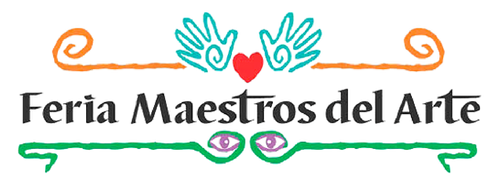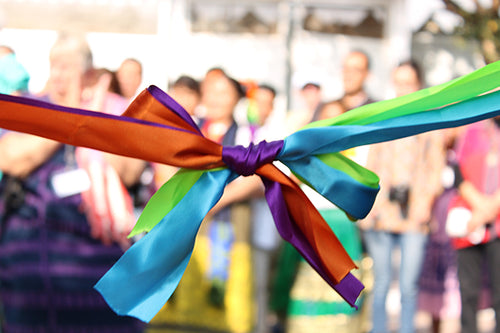
Elvia Gómez López, Cooperativa Jolom Ancianos Mayaetik , San Cristóbal de las Casas, Chiapas
Cooperativa Jolom Mayaetik (Mayan Women Weavers, in Tzotzil) was formed in 1996 by three women who had been participating in another weaving cooperative and decided to create a new organization in which the tsotsil and tseltal indigenous women members themselves would occupy all positions of leadership and make all decisions. The artisan women come from the highlands region of Chiapas, Mexico. They have been working together in search of new possibilities that will allow them to strengthen their families and community's economy. They participate at the social, political, and economic levels because they believe that the commercialization of their products does not resolve the multiple problems that they must confront every day: poverty, marginalization, and racism.
The women run the cooperative themselves, having their own organizational process, making decisions with regards to their cooperativa, and administering it themselves which has allowed them to begin to construct their own autonomy. The cooperative is composed of over 250 women from the municipalities of San Andrés Larrainzar, Chenalhó, Oxchuc, San Juan Chamula, Zinacantán y Pantelhó. It is from this diverse group that they have been able to produce all of the traditional designs from these regions.
They continuously attend training workshops in the areas of administration, accounting, new designs, dressmaking, and topics for reflection such as indigenous and women's rights, rescuing historical data, etc. to strengthen themselves and allow us to reach our objectives.
The growth of the Jolom Mayaetik Cooperative and the Center for Training has shown them that the creation and use of collective spaces for women allows them to develop relationships, both within and between their communities and the public. Their work thus contributes to the development of a more "just" society.
For thousands of years, rituals have given each indigenous group a meaning of life. Without doubt, the survival of weaving, techniques, colors, and symbolism, has preserved the representation of the Mayan world: fertility, life, death, beliefs, and deities. The cosmology and history of an entire culture is written on every weaving and serves as a communion between mortals and deities. Found in every texture are the diamond or, on occasions, a zigzag representing a snake, both symbols of a universe in harmony, or the maize (corn) plant, symbol of mother earth with its multiple arms with which it embraces her children. Though the majority of the women weave with the back-strap loom, some of them embroider as well. In both, everyone uses cotton and self-produced wool.
Ancient techniques such as the back-strap loom or natural dyes are intertwined with techniques brought from outside such as the pedal loom or more modern techniques such as sewing machines. This allows young women to work without having to migrate to the cities and continue developing the culture of textile. They can still create traditional designs, while at the same time creating new designs.
Jolom Mayaetik wanted to be a different kind of cooperative. They wanted a space where they could have more freedom and do new and creative things. Apart from the commercialization of their products they are taking workshops, go on sales trips, and visit other states and countries. But the biggest difference in this cooperative is that it is the women themselves who administer it.
Many cooperatives are not actually cooperatives in the true sense of the word. The women themselves of Jolom Mayaetik are the ones who take trips and go on speaking tours. They have developed projects such as workshops on marketing, natural dyes, computation, Spanish, English, women’s and indigenous rights, working in their organic garden, and producing a book. This book is about their lives as indigenous women.
President: Elvia Gómez López
Feria Maestros del Arte 2012, 2013, 2024, 2025
ARTIST INFORMATION
Calzada de la Escuela #25
La Quinta San Martin
San Cristóbal de las Casas, Chiapas
967 112 5071 or 967 115 6291
jolommmayaetik@hotmail.com

